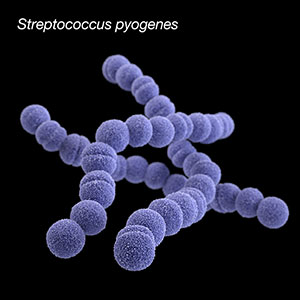Change in the Pharyngeal Microbial Environment after a Tonsillectomy: Difference between revisions
No edit summary |
|||
| Line 28: | Line 28: | ||
Every point of information REQUIRES CITATION using the citation tool shown above. | Every point of information REQUIRES CITATION using the citation tool shown above. | ||
<br> | <br> | ||
A tonsillectomy is the surgical removal of the tonsils which is performed as a last resort invasive effort to fight chronic infection, cancer, and other issues that cannot be solved via antibiotics <ref name=aa>. Tonsillectomies previously were the most popular procedure used to combat respiratory disease, however, now the prevalence of such procedures has decreased to less than one half of the number from 40 years ago <ref name=c> | A tonsillectomy is the surgical removal of the tonsils which is performed as a last resort invasive effort to fight chronic infection, cancer, and other issues that cannot be solved via antibiotics <ref name=aa/>. Tonsillectomies previously were the most popular procedure used to combat respiratory disease, however, now the prevalence of such procedures has decreased to less than one half of the number from 40 years ago <ref name=c/>. | ||
==Pharyngeal Microbial Environment Pre-Tonsillectomy== | ==Pharyngeal Microbial Environment Pre-Tonsillectomy== | ||
Revision as of 00:41, 9 April 2024
By Lindsey Abramson
Introduction
Tonsillectomies, the surgical removal of the tonsils, are performed on individuals with chronic tonsillitis infections, recurrent strep throat, enlarged tonsils, and other issues such as cancerous cells [1]. The goal of this radical procedure is the eradication of bacteria assuming antibiotics have been frequently used and failed / resistance was developed [2]. Streptococcus pyogenes (also called group A streptococci, or GAS) is the causative agent bacterium of strep throat, one of the leading causes that push individuals towards an elective tonsillectomy [3]. Although viruses are also common, other problematic bacteria include: Staphylococcus aureus, Haemophilus influenzae, Streptococcus pneumoniae, Escherichia coli, and Pseudomonas aeruginosa [2].

At right is a sample image insertion. It works for any image uploaded anywhere to MicrobeWiki.
The insertion code consists of:
Double brackets: [[
Filename: PHIL_1181_lores.jpg
Thumbnail status: |thumb|
Pixel size: |300px|
Placement on page: |right|
Legend/credit: Magnified 20,000X, this colorized scanning electron micrograph (SEM) depicts a grouping of methicillin resistant Staphylococcus aureus (MRSA) bacteria. Photo credit: CDC. Every image requires a link to the source.
Closed double brackets: ]]
Other examples:
Bold
Italic
Subscript: H2O
Superscript: Fe3+
What is a Tonsillectomy?
Include some current research, with at least one figure showing data.
Every point of information REQUIRES CITATION using the citation tool shown above.
A tonsillectomy is the surgical removal of the tonsils which is performed as a last resort invasive effort to fight chronic infection, cancer, and other issues that cannot be solved via antibiotics [1]. Tonsillectomies previously were the most popular procedure used to combat respiratory disease, however, now the prevalence of such procedures has decreased to less than one half of the number from 40 years ago [4].
Pharyngeal Microbial Environment Pre-Tonsillectomy
Include some current research, with at least one figure showing data.
Pharyngeal Microbial Environment Post-Tonsillectomy
Include some current research, with at least one figure showing data.
Section 4
Conclusion
References
- ↑ 1.0 1.1 1.2 Brietzke, S.E. and Andreoli, S.M., 2021. Systematic review and meta-analysis of the change in pharyngeal bacterial cultures after pediatric tonsillectomy. Otolaryngology–Head and Neck Surgery, 164(2), pp.264-270.
- ↑ 2.0 2.1 2.2 Yildizoglu, U., Polat, B., Gumral, R., Kilic, A., Tosun, F. and Gerek, M., 2015. Effect of antibiotic use on bacterial flora of tonsil core in patients with recurrent tonsillitis. European Archives of Oto-Rhino-Laryngology, 272, pp.1525-1528.
- ↑ 3.0 3.1 Slonczewski, S.L, Foster, J.W, and Zinser, E, 2024. Microbiology an evolving science, sixth edition. W.W. Norton and Company.
- ↑ 4.0 4.1 Stuck, B.A., Windfuhr, J.P., Genzwürker, H., Schroten, H., Tenenbaum, T. and Götte, K., 2008. Tonsillectomy in children. Deutsches Ärzteblatt International, 105(49), p.852.
- ↑ Younis, R.T. and Lazar, R.H., 2002. History and current practice of tonsillectomy. The Laryngoscope, 112(S100), pp.3-5.
Authored for BIOL 238 Microbiology, taught by Joan Slonczewski,at Kenyon College,2024
